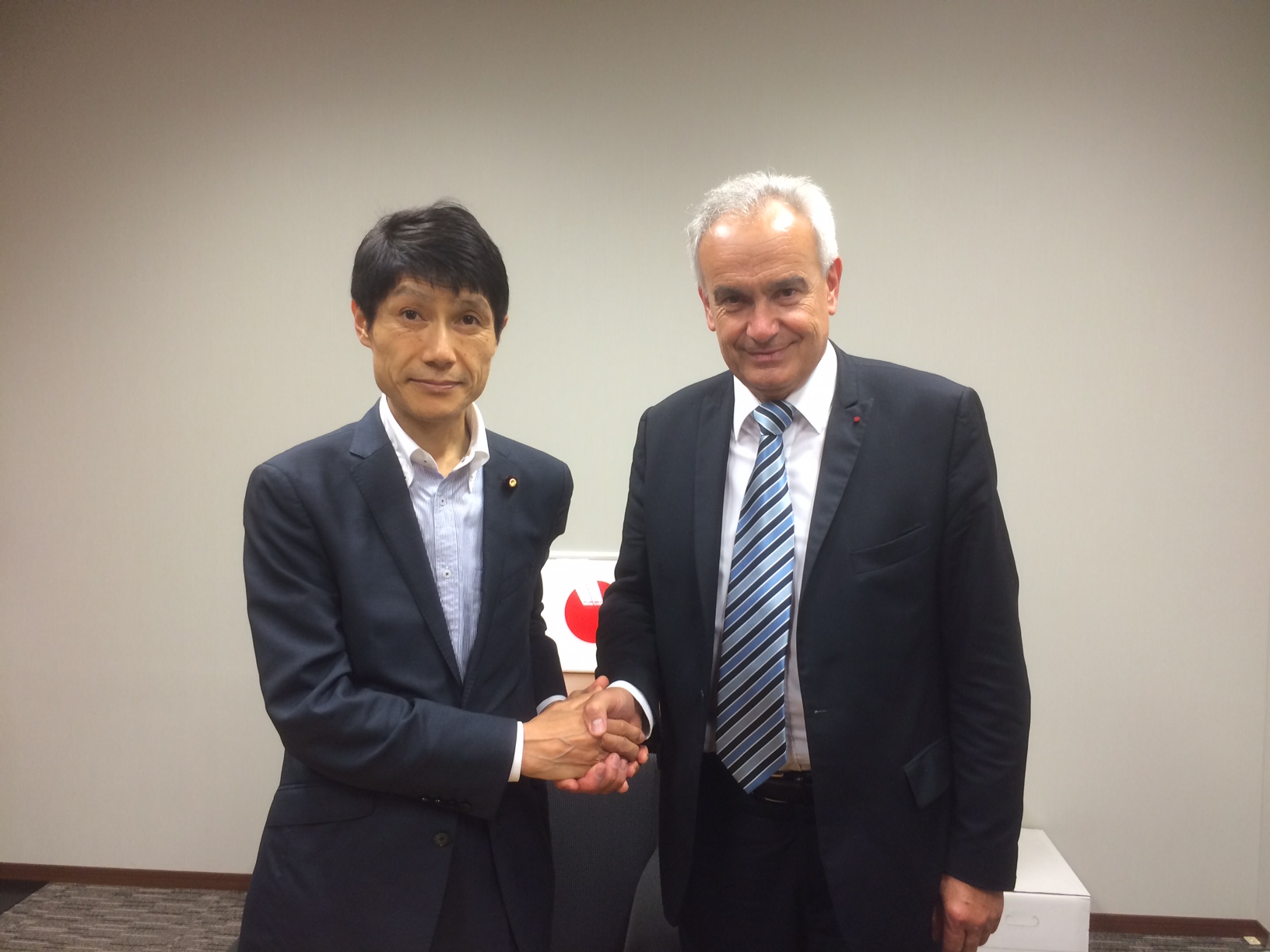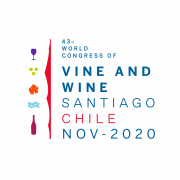
43rd World Congress of Vine and Wine
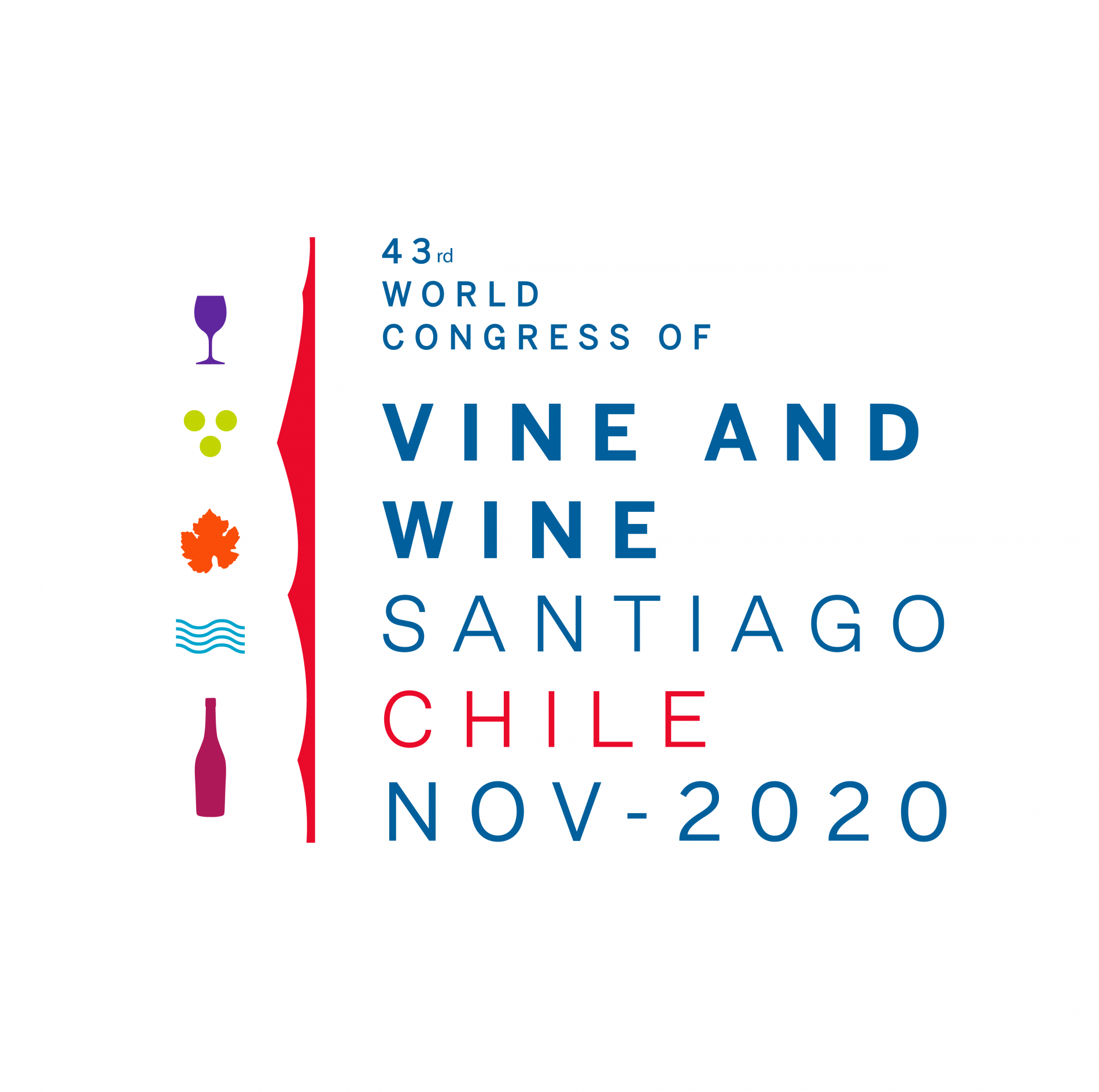
https://www.oiv2020.cl/
23 to 27 November 2020
Santiago of Chile, Chile
CALL FOR PAPERS
The 43rd World Congress of Vine and Wine and the 18th General Assembly of the International Organisation of Vine and Wine (OIV) will take place from 23 to 27 November 2020 at Casa Piedra Conference Center, Santiago of Chile, at the invitation of the Ministry of Agriculture of the Government of Chile.
Chile will have the honour of hosting the world’s leading specialists in the fields of viticulture and oenology, as well as world-class health, safety, law and economy experts involved in the area of vitivinicultural production.
The 43rd Congress will address issues concerning the contribution of the sector to a world environmentally and economically changing under the following theme:
“Adaptation to new scenarios: production, social and market challenges”
Papers must be submitted online via the Congress’ presentation submission platform.
The deadline for the submission of abstracts is 17 May 2020 and the deadline for sending the final version of accepted papers is 20 September 2020.
For questions regarding the paper submission platform, please contact: papers@oiv.int
We thank you in advance for your scientific contribution to the 43rd World Congress of Vine and Wine.
More information
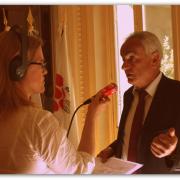
The Director General of the International Organisation of Vine and Wine, Mr Jean-Marie Aurand, will present the first estimations of the vitivinicultural sector production on 23 October 2014.
To attend this press conference, journalists are kindly asked to send an email with their name and their professional contact details to press@oiv.int.
Date: Thursday 23 May 2014
Time: 11am
Location: International Organisation of Vine and Wine, (OIV), 18 Rue d'Aguesseau, Paris 75008 - Metro station Madeleine or Concorde [see map]

Monika Christmann elected as President
Having been involved in the activities of the OIV for around 20 years, Prof. Dr. Christmann was unanimously elected by the States present. An oenology teacher and researcher at the Geisenheim Research Institute, she was formerly President of the OIV "Oenology" Commission and OIV Vice-President for 3 years, after being elected by the Scientific and Technical Committee.
Monika Christmann will be supported in her new role by a new Steering Committee, since the General Assembly also elected the following as:
President of the "Viticulture" Commission: Benjamin Bois (France)
President of the "Oenology" Commission: Luigi Moio (Italy)
President of the "Economy and Law" Commission: Tony Battaglene (Australia)
President of the “Safety and Health” Commission: Nuria García Tejedor (Spain)
President of the "Methods of Analysis" Sub-Commission: Ondřej Mikeš (Czech Republic)
President of the "Table Grapes, Raisins and Unfermented Vine Products" Sub-Commission: Luis Peres de Sousa (Portugal)

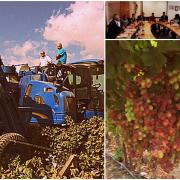
During a meeting with the Minister and his departments, and representatives from the Ministry of Economy, the Standards Institute, the Agricultural Research Organisation, the Israel Export & International Cooperation Institute and the Israel Wine Grape Growers Board, Mr Aurand spoke about how the OIV operates and gave a presentation on the key features of the global vitiviniculture industry. At the request of the professional attendees, he also spoke about various aspects associated with consumption and communication in relation to alcoholic drinks, while Mr Yann Juban summarised the progress of the ongoing reforms to the structure of the European wine market.
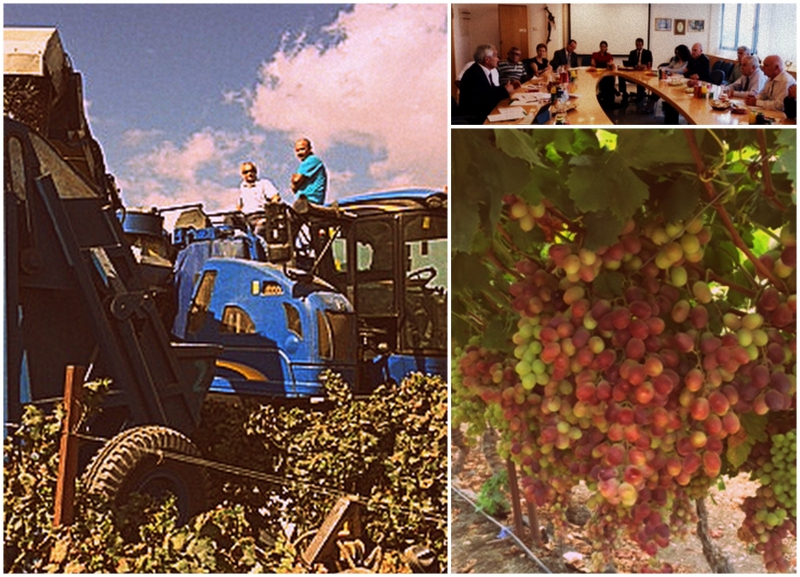
Mr Shamir spoke about the development of the Israeli vitiviniculture sector, which is currently adapting its standards on the basis of the OIV standards, and the sector's interest in building new markets.
These meetings were complemented by visits to various production sites, including table grape production facilities (Tali Grapes in Lachish) and wineries, such as those at Barkan, Castel, Carmel, Ramot Naftali and Adar.
At the request of the Israeli Minister, a wine presentation will be held at the OIV headquarters on 24 November 2014 to explore the special features of Israeli production.
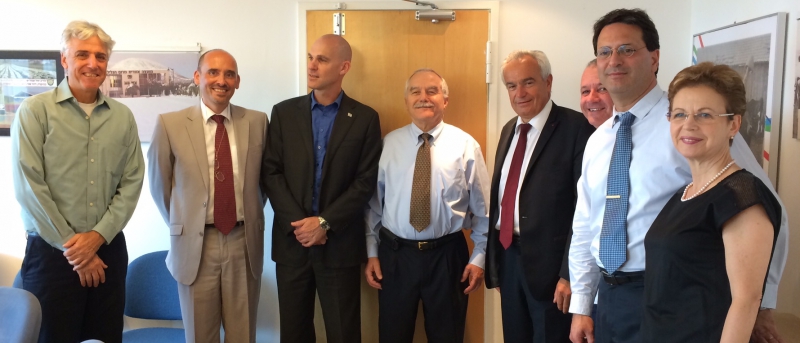
From Left to Right
Prof. Yoram Kapulnik (Director of the Agricultural Research Organisation), Yann Juban (Assistant to the Director General of the OIV), Ofer Sachs (Director of the Israel Export & International Cooperation Institute), Yair Shamir (Minister for Agriculture and Rural Development ), Jean-Marie Aurand (Director General of the OIV), Zahi Dotan (General Manager of the Israel Wine Grape Growers Board), Yair Shiran (Ministry of Economy, Head of the Industry Authority), Dalia Yarom (Director of the Chemistry Lab – the Standards Institute of Israel)
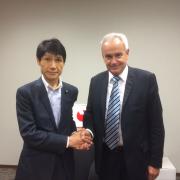
Under the patronage of both the OIV and the Union Internationale des Oenologues, this event brought together more than 3,200 wines from 28 countries, and is the most important international wine competition on the Asian continent.
Jean-Marie Aurand also took the opportunity to meet with the Korean authorities (the Ministry of Agriculture and the Ministry of Health) to speak about the OIV and its work. His hosts were very receptive, and although their country's wine production industry is small, wine consumption is increasing rapidly.
As part of his trip, the Director General also flew to Japan, where he attended meetings with the President of the Japanese Society of Vitiviniculture, the Secretary General of the Japan Sommelier Association, the directors of the National Wine Agency, which reports to the Ministry of Economy, the directors of the Ministry of Agriculture and, finally, Mr Furukawa, a member of parliament sponsoring new draft legislation on wine.
All were very interested in the OIV and its work, as Japan is keen to develop its own wine production industry and has recently established its first ever Geographical Indication for a wine.
These encouraging meetings should be developed into ongoing relationships, in the context of closer ties with the OIV.
